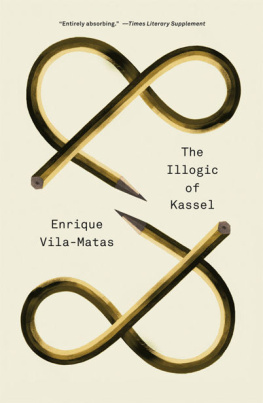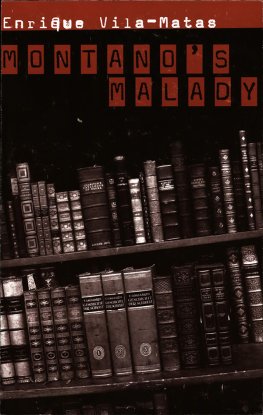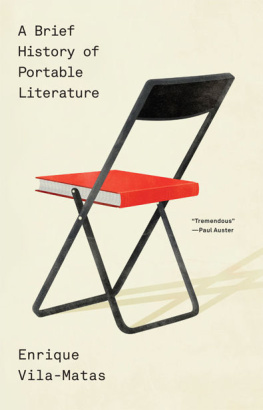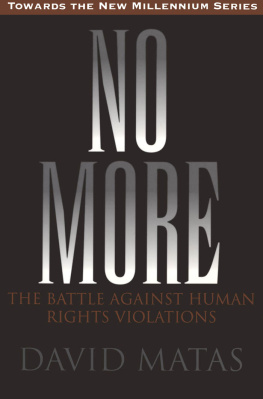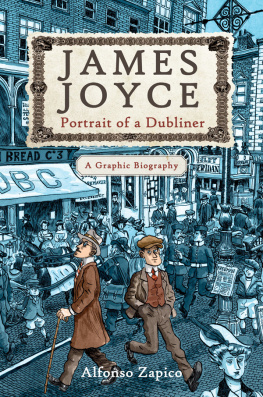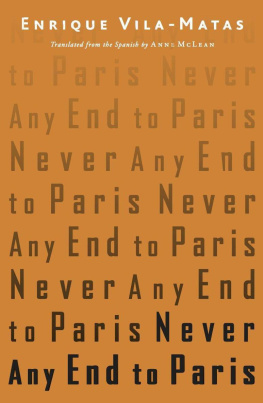Enrique Vila-Matas
Dublinesque
He belongs to an increasingly rare breed of sophisticated, literary publishers. And every day, since the beginning of this century, he has watched in despair the spectacle of the noble branch of his trade publishers who still read and who have always been drawn to literature gradually, surreptitiously dying out. He had financial trouble two years ago, but managed to shut the publishing house down without having to declare bankruptcy, toward which it had been heading with terrifying obstinacy, despite its prestige. In over thirty years as an independent he has seen it all, successes but also huge failures. He attributes the loss of direction in the end to his resistance to publishing the gothic vampire tales and other nonsense now in fashion, and so forgets part of the truth: he was never renowned for good financial management, and whats more, his exaggerated fanaticism for literature was probably harmful.
Samuel Riba known to everyone as Riba has published many of the great writers of his time. In some cases only one book, but enough so they appear in his catalog. Sometimes, although aware that in the honorable sector of his trade there are still some valiant Quixotes, he likes to see himself as the last publisher. He has a somewhat romantic image of himself, and spends his life feeling that its the end of an era, the end of the world, doubtless influenced by the sudden cessation of his activities. He has a remarkable tendency to read his life as a literary text, interpreting it with the distortions befitting the compulsive reader hes been for so many years. Aside from this, he is hoping to sell his assets to a foreign publishing house, but talks have been stalled for some time. He lives in an anxious state of powerful, end-of-everything psychosis. Nothing, and no one, has yet convinced him that getting old has its good points. Does it?
He is visiting his elderly parents, and at this moment, looking them up and down with open curiosity. He has come to tell them how his recent trip to Lyon went. Apart from every Wednesday a regular engagement its a long-standing custom of his to go and see them whenever he gets back from a trip. In the last two years, he hasnt received even a tenth of the offers to travel that he used to, but hes hidden this detail from his parents, as well as the fact that he has closed down the publishing house, since he considers them to be too old for such upsets, and anyway, hes not sure they would really take it in.
He cheers up every time he gets invited somewhere, because, among other things, it allows him to keep up the fiction of his busyness for his parents. Despite the fact that he will soon turn sixty he is, as can be seen, highly dependent on them, perhaps because he has no children, and they, in turn, have only him: an only child. Hes even traveled to places that barely interest him, just to be able to tell his parents about the trip afterward and keep them believing they dont read newspapers or watch television that he is still publishing and his presence is still sought in many places, and therefore, that things are still going very well for him. But its not remotely like this. When he was a publisher he used to have a very busy social life, but now he has far less of one, if it counts as a social life at all. On top of the loss of so many false friendships, there is also the problem of the anxiety that has overcome him since he gave up drinking two years ago. It is an anxiety that comes as much from his awareness that, without alcohol, he would have been less daring in what he published, as from his certainty that his social life was forced, not at all natural and perhaps came only from an unhealthy fear of disorder and solitude.
Nothing has gone well for him since he began courting solitude. Despite trying to keep it from falling into the abyss, his marriage is in fact teetering on the edge, although not always, because his relationship passes through the most varied states and goes from euphoria and love to hatred and disaster. Every day he feels more unstable in every way, and hes become grumpy and dislikes most of what he sees. Something to do with getting old, probably. But the fact is that he is starting to feel uncomfortable in the world, and turning sixty makes him feel as if he has a noose around his neck.
His elderly parents always listen to the tales of his travels with great curiosity and attention. At times, they even look like two exact replicas of Kubla Khan listening to Marco Polos stories. The visits that follow one of his trips take on a special quality; they seem to belong to a higher category than the more monotonous, habitual Wednesday visits. Todays also has that quality of being extraordinary. However, something strange is happening because, despite having been in the house for a while, he still hasnt managed to broach the subject of Lyon. And the thing is he cannot tell his parents anything about his time in that city, because he was so cut off from the world there and his journey so savagely cerebral that he is unable to dredge up a single, minimally human anecdote. Besides, what actually happened to him in Lyon was unpleasant. It was a cold, unfriendly trip, like those hypnotic journeys that lately he so often undertakes in front of his computer.
So youve been to Lyon, his mother says again, by now even slightly concerned.
His father has slowly begun to light his pipe and looks at him in surprise, as if also wondering why he doesnt tell them anything about Lyon. But what can he tell them? Hes not going to start talking about the general theory of the novel he managed to concoct all by himself, there in the hotel. They wouldnt be at all interested in how he elaborated this theory, and moreover, he doesnt think they really know what a literary theory might be. And supposing they did know, hes sure they would find the subject profoundly boring. They might even come to the same conclusion as Celia: that he has been too isolated recently, too disconnected from the real world and seduced by his computer or, in its absence as in Lyon by his own mental journeys.
In Lyon he spent his time avoiding all contact with Villa Fondebrider, the organization that had invited him to give a lecture on the grave state of literary publishing in Europe. In revenge, perhaps, for the disdain shown him by the organizers in not sending anyone to meet him either at the airport or the hotel, Riba had shut himself up in his hotel room and managed to realize one of the dreams hed had when he was in publishing and didnt have time for anything: to write a general theory of the novel.
Hed published lots of important authors, but only in Julien Gracqs novel The Opposing Shore did he perceive any spirit of the future. In his room in Lyon, over the course of endless hours spent locked away, he devoted himself to a theory of the novel that, based on the lessons apparent to him the moment he opened The Opposing Shore, established five elements he considered essential for the novel of the future. These essential elements were: intertextuality; connection with serious poetry; awareness of a moral landscape in ruins; a slight favoring of style over plot; a view of writing that moves forward like time.
It was a daring theory, given that it put forward Gracqs book, usually considered antiquated, as the most advanced of all novels. He filled a great many pages expanding on his proposal for the novel of the future. But when he had finished this tough job, he remembered the sacred instinct of having no theories spoken of by Pessoa, another of his favorite writers and whose book The Education of the Stoic he had once had the honor of publishing. He remembered this instinct and thought of how foolish novelists sometimes were, and remembered several Spanish writers he had published whose novels were the ingenuous product of extensive, sophisticated theories. What a huge waste of time, Riba thought, to come up with a theory in order to write a novel. He now had genuine grounds to say this, as he had just written one himself.


